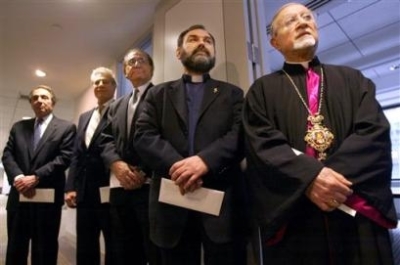5 Things You Should Know About the Armenian Christian Genocide
Debate Continues on Whether the U.S. Should Call It Genocide

While some nations have recognized what happened to the Armenians as genocide, the matter is fraught will geopolitical considerations.
As a candidate for president, Barack Obama promised that he would officially recognize the mass slaughter of Armenians as a genocide but refused to do so during his time in office. This was a particular point of contention during in his administration, especially since 2015 marked the centennial anniversary of the genocide.
Some of his top foreign policy advisers, like Ben Rhodes and former U.N. Ambassador Samantha Power, have said that his decision to not call it a genocide was a mistake. Power is a scholar of genocide whose book, A Problem from Hell: America and the Age of Genocide, explores the reluctance of American policymakers to intervene to stop genocides around the world, including the genocide of the Armenians beginning in 1915.
Writing in the Federalist on Monday, scholar Stella Morabito, who is the granddaughter of genocide survivors, urged President Trump to label it a genocide this year, noting that the United States has had a murky stance on the issue over the years. No American president has ever declared what happened to the Armenians a genocide, except for Reagan in a 1981 official proclamation.
"In addition to that, there have been two joint resolutions of Congress recognizing the genocide, passed in 1975 and in 1984, as well as one resolution by the House of Representatives, passed in 1996. Also, 48 U.S. state legislatures have condemned the mass killings as genocide."




























